Learning to code can help you do all manner of things – and choosing one of the best coding courses online can help speed up your learning process. We’ve tested out all of the below personally, spending several days on each platform to assess how well the teaching methods work. Our guide on this page is the result of a lot of research and reviewing.
These coding classes really vary in their approach but in general, many of the best ones allow you to test out lines of code in specially formatted ‘work spaces,’ which are built into the learning platforms. You’ll also find that the best coding websites feature lively student forums, where you can discuss coding challenges and get help on tricky problems.
We tested eight of the best coding courses online, reviewing them for things like ease of use, depth of learning, and useful professional feedback. We've also looked at things like user reviews, to make sure that our findings are in line with the experiences of other students.
Our promise to you
One reason you might want to learn to code is for job opportunities, as there’s a huge demand at the moment for people with coding skills. If this is the case, then you may want to opt for a platform like Udacity or Codecademy. The courses on these websites culminate with a student project, which you can add to a portfolio or resume to demonstrate your newfound skills.
As a quick explainer, a lot of the best online learning platforms offer coding courses, but we haven’t featured all of them on this list. Some of them, like Udemy, offer genuinely great courses – but other platforms haven’t managed to incorporate enough tools and teacher feedback to really qualify as one of the best coding courses online.
Still struggling to pick a language? Have a flick through our guide to the most useful coding languages to learn in 2022, before you read through our ranking below.
How we chose the best coding courses online
Why you can trust Top Ten Reviews
1. Course quality and content
The primary deciding factor in our ranking is the course quality. Courses that provide clear, concise teaching with specific, achievable goals rank highest in this list. We also rate courses that are kept up to date – platforms that include old content or graphics have landed further down in our rankings.
2. Teaching method
Coding can be taught through a variety of interactive means. In addition to talking head videos, you can learn to code by using fun tools that let you see your code in action. We really rate platforms that incorporate these kinds of methods and keep lessons engaging.
3. Ease of use
When you first start code, you might find lessons a little confusing. That's why it's so important that the teaching platform, app, or website is easy to navigate. Having a simple lesson layout can really help students engage with the topic quickly, which is why it's an important deciding factor in our ratings.
4. Community support
Having easy access to student communities is crucial to learning to code. You'll find that the quickest way to get answers and feedback on your work is by accessing this community – which is why a lot of our highest ranking platforms have lively student forums.
5. Cost
There are plenty of low-cost options when it comes to learning to code. This is especially the case for beginners, who are just getting to grip with the fundamentals. It's not the most important factor in our rankings, but it's why certain platforms (like Udemy) rank above others in this list.
Udacity: Best coding courses online overall
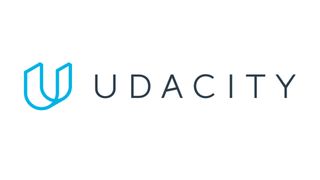
The courses on Udacity don't simply teach you how to do the basics of a language. Instead, they focus on how you can specifically use that language in particular projects. Of course, you have the bog-standard introductions to Python and HTML available on the website. But you also get advanced courses that teach you how to implement AI in healthcare and self-driving cars.
If that sounds a bit beyond you at the moment, then don't worry. The introductory courses are thorough and straightforward enough to get you handling the basics. We also like that classes culminate with projects that are assessed by experts, who will give you feedback if it's not up to scratch. Throughout the course, you'll also get the chance to implement your code and see it live in action, which is always preferable to just learning the theory. Throw in a lively student forum, where you can get speedy answers to questions, along with regularly updated courses, and you have the complete package.
The only downside is that this high quality comes at a cost. Prices start at $399 per month, although there are often sales that give you this first month for free if you commit to a longer period. If you're serious about treating coding as a career, then it's a great option – but there are cheaper platforms if you're really just looking to learn the basics.
SoloLearn: Best app for learning to code
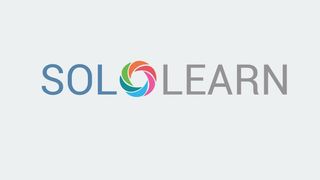
You can switch seamlessly between the SoloLearn app and the web-based platform, which means that you can take all your lessons on the go or sit at your laptop and work through them at home. You can even take the lessons offline, which means you don't need to worry if you're suddenly plunged into a WiFi-free zone.
It's so easy to navigate around the app too, as the homepage makes it easy to see your lesson plans and where you finished in your previous session. And like Udacity, this platform uses tools that allow you to see your code come to life on the page.
There isn't a lot of depth behind the lessons, though, and you may find that when you've completed a course you're hungry for more information. There's also no interaction with teachers or tutors here, although a student forum does mean that you'll have plenty of peer support if you ever get stuck.
The best bit about this app is that it's completely free. There is a paid-for version, which grants you an ad-free experience and the option to create your own lesson plans. In our experience, though, the free option is perfect for beginners looking to learn the basics.
Udemy: Best for beginners
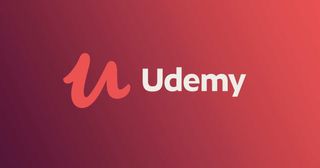
Udemy is a more generalist learning platform, where tutors and teachers of all backgrounds can upload courses. This does mean that there are a few classes on there which haven't been thoroughly edited and vetted – but there are also plenty of gems available at low prices.
One of these is the ever-popular Python boot camp course, which has been taken by over 1.3 million students. Reviews are dazzlingly positive and it's also regularly discounted to around $10. At this price, you don't get the same quality as Udacity courses, and there are certainly fewer learning tools available. But you do get 22 hours of on-demand video and 19 different coding exercise to complete.
There are plenty of similarly priced courses in other coding languages, too, and as Udemy doesn't tie you down to a subscription, you can pay for however many courses you like. It's not for advanced students, but beginners should find the courses give a thorough grounding in their chosen language.
Coursera: Best for accredited courses
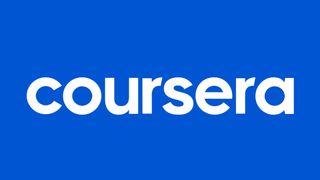
Coursera is technically a generalist platform, where you can learn a range of subjects – but it really shines when it comes to coding. The classes on there have been coordinated and approved by the likes of Google engineers and Harvard professors, so you know you're receiving high-quality teaching. What's more, you can get an accredited certificate at the end of many courses (featuring the name of those impressive organizations) which will look pretty good on your resume.
There is a range of languages available to study, including Python basics and HTML introductions. The only downside we experienced was that the student community wasn't as lively as other places, so if you get stuck it can be difficult to get help. Also, plenty of users report there being problems in the difficulty levels assigned to modules, with students reporting that some courses pitched as 'beginner' classes are really better suited to advanced students.
However, the silver lining here is that Coursera allows you to 'audit' plenty of classes for free. This means that you can study the materials and attempt the exercises without paying a penny. You'll need to cough up if you want that certificate, but it's nice to have the free option to test out the content first.
Codecademy: Best platform for learning multiple languages
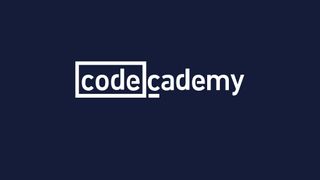
One of the highlights of this platform is its clearly laid-out catalogue. Having a simple list of the languages available on the website, alongside courses that are grouped together by skill/ career paths, makes it a lot easier to pick your lessons. It's a simple trick, but helps a lot when you're just starting out; none of the other platforms we reviewed managed to make it quite as straightforward. There's even a quiz available, if you're still undecided on which course to take.
The courses themselves are great too, easy to follow and engaging. You can take all of the basic classes for free, so this is a great place for beginners. Like a lot of our favorite platforms, you'll find learning tools here that let you test out your code directly on the website. And the peer support is great, with helpful forums available for those who are stuck on a task.
There is a paid option ($39.99 per month or $239.88 a year) which gives you access to advanced teaching tools and resources. These are probably best-suited to those who want to take the more challenging lessons.
There's also an app, which is useful if you want to refresh your memory on coding topics. It's not quite as comprehensive as the SoloLearn app, but a useful tool nonetheless.
Treehouse: Best for portfolio building
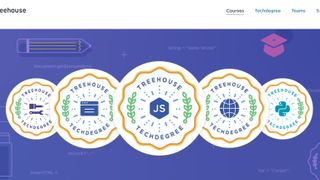
Treehouse is a paid-for website-only learning platform, offering nearly 600 high-quality courses and workshops, covering a diverse range of online technology topics. Coding language courses include JavaScript, Python and Java, while more advanced topics cover Front End Web Development, Computer Science, Data Analysis and Digital Literacy.
The dashboard is simple-to-use and topics are generally divided into ‘tracks’, which breaks down your chosen subject into modules, allowing each to be tackled in manageable detail. ‘Workspaces’ allow you to practice coding along the way. Video tutorials are predominantly used throughout the site – and short quizzes and code challenges test you at the end of each lesson.
There are three tiers of membership. ‘Courses’ and ‘Courses Plus’ are suitable for beginners and hobbyists, while the ‘Techdegree’ provides in-depth project experience and portfolio building for those seeking out a career in online technology. A basic subscription starts at $25 per month and the Techdegree plan will set you back $199 per month. However, there is no rule stating you must learn one topic at a time. The seven-day free trial is a handy starting point.
LinkedIn Learning: Best for professional development

You can access LinkedIn Learning with a premium subscription, which brings all kinds of benefits. As well as granting you access to various courses on the learning portal, a premium subscription also lets you do things like see job vacancies where you would be a good fit and check out who has looked at your profile.
This is definitely a platform that is geared towards job seekers. So if you are specifically looking to move careers, then accessing the coding courses here might be a great option. Not only are they clearly presented and easy to follow, they also net you a certificate that you can display on your professional profile.
Prices start at $29.99 per month and the majority of lessons are taught via high-quality videos. While there isn't exactly a student forum here, there is a Q&A section where pupils and tutors can help anyone who is stuck.
It's not the cheapest, but it's a great choice for anyone who's specifically looking to buff up their resume with a coding course.
Skillshare: Best subscription option for coding courses
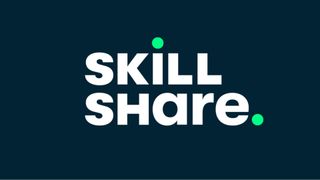
Skillshare is a generalist platform, where creatives can upload videos to teach others and share their skills – hence the website name. A lot of the courses on here have a creative edge, with plenty of lessons on things like photography and drawing. There's also a sizeable collection of great coding courses, which are perfect for taking students from beginner concepts through to a more advanced understanding.
At $19.99 per month, Skillshare is one of the more reasonably priced subscription-based learning platforms. You can also get a seven-day free trial of the website, which is useful if you want to get hands-on with the lessons before you commit to paying. The benefit of subscription-based courses is that you can explore lots of different classes, so you can try different languages. So if you're someone who likes to learn broadly, across multiple disciplines, then this could be a good fit.
Like a lot of the best platforms, there's a student community here, where you can ask questions and get help. But the website doesn't quite match up to the likes of Udacity and SoloLearn, as it lacks the fun tools that let you test out lines of code directly on the website.
edX: Best for college level coding courses
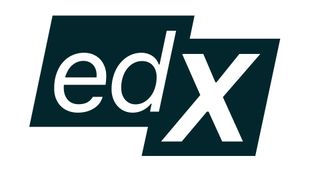
There's not a lot of difference between the edX and Coursera platforms, which both offer accredited courses from a wide range of universities and organizations. However, edX doesn't offer the full range of Google-approved classes, so it's positioned slightly lower down this list.
Like Coursera, though, you can audit classes for free on this platform, which is very useful if you're just looking to learn the basics. And if you upgrade, you can get a certificate to show off on your resume.
Some of the classes on edX can feel slightly dated, and it's also harder to find student reviews of courses, so it can be tricky to find one that is definitely worth your time. But if you're ready to put in the time, you can find real gems on there that have been curated by respected colleges and universities.
There are also plenty of advanced courses available for people who have a good understanding of coding languages, too. Be warned, though, that these tend to be expensive and don't come with a free audit option.
Coding course FAQs
How much do coding courses cost?
Plenty of the above platforms offer some form of free coding courses for people who are just starting out. While these are great for beginners, if you're looking to seriously dive into the world of coding and use it for work or your own personal projects, then you'll probably want one of the paid-for options.
You have a lot of choices here. Platforms like Udacity are pricey (starting at $399 per month) but give you access to direct feedback. You'll also finish a professional-tier project at the end of the course, so you can show prospective employers that you have plenty of hands-on experience at building and running code.
However, if you're still tentatively experimenting with coding and want to go for a cheaper option, then you should find that courses will cost in the region of $10 - $50. Udemy allows you to master the basics at the lower end of that scale, while platforms like Skillshare allow you to experiment with multiple courses for a $19.99 monthly subscription fee.
Is coding difficult?
Like learning any subject, coding requires a little patience and some effort to master, but most people find it relatively easy to grasp the basic concepts. Where it becomes trickier is when you want to start writing your own original code and implementing it in projects.
Everyone learns at a different pace, but it takes most people around three months of full-time learning to master a particular language. The good news is that once you've mastered one language, you should find a lot of the skills transfer over to a different one.
How to get extra help with learning to code
Everyone gets stuck sometimes, which is why student forums are useful. A lot of the platforms listed above feature their own boards where you can post questions – and answer some, too, if you feel confident.
If you're after some more intense one-on-one help, then you may find that some of the best online tutoring services could be of use. The top-rated services in our guide can offer help with various topics (such as Python and HTML) and quickly match you with an experienced tutor. It's a good option if you're stuck working on a problem and need a second set of eyes to help you solve it; an experienced software engineer or data specialist should be able to identify your problem, help you understand an issue, and work with you to fix it.

